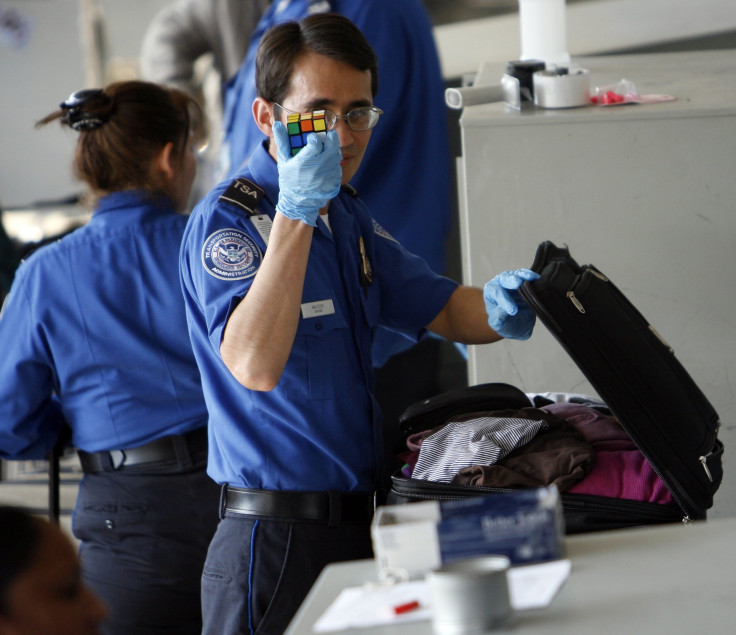After Russian Plane Crash, International, US Airports' Security On Alert Over Suspected Bombing Over Sinai

U.S. and international airports have planned to significantly beef up security in the wake of reports from the British and U.S. governments that terrorists were likely responsible for placing an explosive device on a Russian plane that crashed last weekend in the Sinai Peninsula in Egypt, killing all 224 people aboard, aviation security experts said Thursday. The explosion on the Metrojet aircraft Saturday, which would be the worst attack since 9/11 if it is proved to be terrorism, has raised public fears about flying while also shedding light on general security at U.S. airports.
“There will be a tremendous [security] push at U.S. and international airports in the coming months,” said Douglas R. Laird, a former Secret Service agent and onetime head of security for Northwest Airlines, who also said airport security will never be 100 percent. “But it’s a terrible dilemma for airport security because there is nothing they can do about this except be more vigilant and do the job to the best of their ability. It’s very difficult to examine baggage, for example, to a greater degree than airports already do with their state-of-the-art scanning equipment.”
Security representatives at Charles de Gaulle Airport in Paris and Domodedovo International Airport in Moscow said security arrangements were being reviewed in light of the suspected terror attack. Security forces at Los Angeles International Airport were “absolutely concerned” after hearing about the explosion, according to public information officer Robert Pedregon, who said management there had not yet solidified plans to increase security.
Flights from Sharm el-Sheikh to UK delayed amid concerns Russian jet was brought down by "explosive device" - No 10 https://t.co/n9tHyhtONF
— BBC Breaking News (@BBCBreaking) November 4, 2015Michael England, a spokesman for the U.S. Transportation Security Administration, refused to comment when asked if his organization would increase security at U.S. airports. Security leaders at airports in Atlanta and in Fort Worth, Texas, also refused to comment. Similarly, a representative at London’s Heathrow Airport said officials would not discuss security issues at the airport.
U.S. President Barack Obama was reviewing his options with regard to enhanced flight security, White House press secretary Josh Earnest said at a briefing Thursday. The Department of Homeland Security will announce aviation security options when they are ready, he said.
While security inside U.S. airports may not be formally increased following the suspected terror attack, U.S. air travelers have begun to show concern. An MSNBC poll Thursday reported that 51 percent of people in the U.S. were fearful of flying after the discovery that the Russian aircraft was possibly brought down by a bomb.
Those renewed fears about flying came less than five months after a Homeland Security report found that 67 of 70 pieces of luggage containing weapons and bombs managed to elude security at airports around the country. Rep. Jason Chaffetz, R-Utah, chairman of the House Oversight and Government Reform Committee, called the failure rate "deeply alarming” while pointing out that security had not improved at U.S. airports despite the fact that the TSA had spent $540 million on baggage-screening equipment in six years.
British Prime Minister David Cameron added to those concerns Thursday when he said the explosion was more “likely than not” caused by a bomb. U.S. authorities later raised questions about security at Sharm el-Sheikh International Airport in southern Egypt, the departure point for the doomed flight, and speculated whether a worker there was involved in the plot.
The U.K. government was the first to take action and halted all flights beteen the U.K. and Sharm el-Sheikh, with Secretary for Transport Patrick McLoughlin saying in a statement to the House of Commons that the U.K. is “working with the Egyptians to assess, where necessary, to improve security at the airport.
“This could, for example, include different arrangements for handling luggage. Beyond that we’re working with the Egyptians and airlines to put in place long-term sustainable measures to make sure our flights remain safe,” McLoughlin continued.
Responding to the U.S. theory that the bomb may have been smuggled on board by airport workers, Egypt’s Civil Aviation Minister Hossam Kamal said that assertion was “not based on facts” and all of the country’s airports apply strict international security procedures, according to a Reuters report.
However, one worker from the airport said security was very poor there. "The British complained then that they weren’t checking people enough,” the unidentified employee told the Guardian. “We should have done more. The security could have been improved by putting another scanner outside and updating the others.”
© Copyright IBTimes 2025. All rights reserved.






















